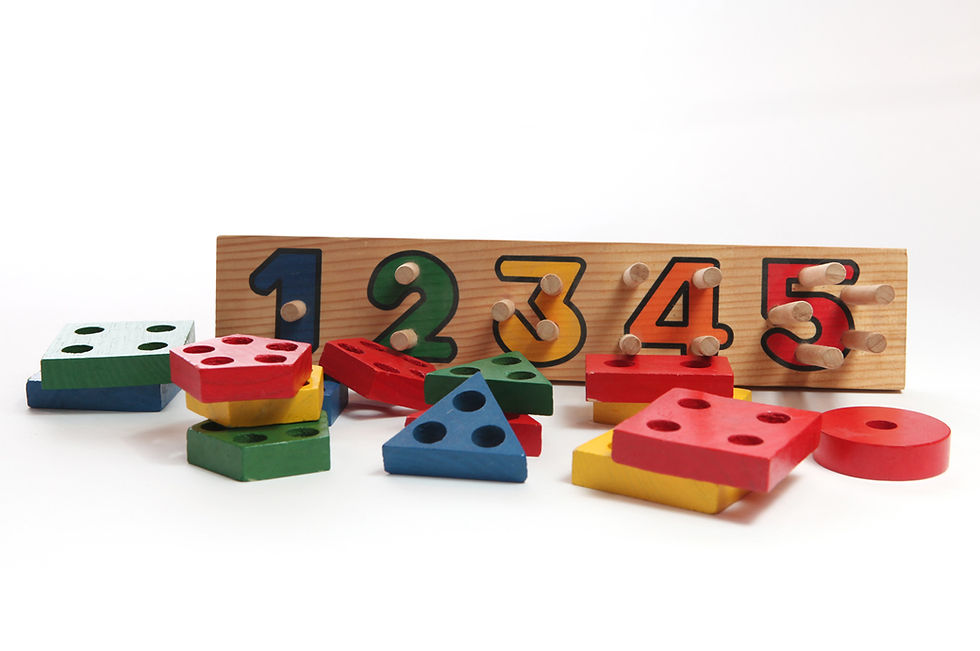How Important Is Fun In Learning? Part II
- info1622066
- Apr 30, 2024
- 3 min read

Just how important is fun to the learning process? We believe very! As we discussed last time, ask any kid why they like their favourite classes, teachers, activities, or adventures, and their answers will revolve around a central theme: “Because they’re fun!”
Gameplay
We talked about how we can make classroom lessons more fun and engaging—and we can infuse even more fun into the process. For younger grades, we feel it is critically important to involve gameplaying in math education. Math is a logical subject, and to prevent instruction from feeling impersonal, dry, and inapplicable, we take the time to have fun! By playing games, we emphasize that math can be done with a smile, with friends, with exciting stakes, and with creativity, too.
As touched on earlier, games are a fantastic way to give students learners a sense of purposeful application for their new skills. Games mimic the stakes that are present in real life, allowing children to play with risk and reward. This supplies a sense of importance to their actions. Games transform math from an abstract learning goal in itself to a tool in the hands of a capable, creative player who can use it to his or her competitive advantage.
It’s this exact concept that we want to drive home to our students, right alongside any literal math skills—math is both a tool and a dictionary. It’s a tool with powerful properties and remarkable flexibility, able to help untangle and solve all kinds of mysteries. It’s a dictionary in that it’s a fixed, explorable explanation of exactly how the world is set up, enabling its users to probe and answer all kinds of questions.
Moreover, the more opportunity we give to our learners to apply the skills they’ve learned, the deeper they will intake that information. Application challenges one’s understanding because different bits of information can be omitted in different questions. Games are engaging way that we can tie all this together with a ribbon of fun, compounding the motivational power.
Leadership
We’ve shown that learning in and of itself can absolutely be made fun. One more critical component to making that possible is the teachers themselves. Our Mentorhood teachers are chosen because they have fun teaching math, too. Our educators are having fun delivering their material, getting a sense of accomplishment from seeing kids make mental connections, and creating a trusting classroom bond. We get to take a vested interest in our students. Not only that, but we are excited about the math itself, because we know how practical it is. Many of our teachers hold or are pursuing higher education credentials in math-related fields and are using complex mathematics on a daily basis. When we know the incredible usefulness of the skills we are imparting, it is much easier, even second nature, to create a fun, positive classroom environment.
If we expect our students to be having fun, our teachers should be too. That’s where it starts. Teachers should be willing and able to employ a sense of passion and enthusiasm. Students can sense when teachers have joy about the material they are communicating, and they feed off of it, too. This also helps remove any stigma that students may feel about liking math, or being happy about being in school, as it normalizes the accompanying joy.
Teachers set the normal standard for how a classroom feels, and we feel very passionate about onboarding teachers who are on board with that process.
When students have fun, students engage. When students engage, they learn better, faster, and they retain a lot more, as well. Students keep coming back to our classes, and there’s a reason for it. We love it when the number one reason that parents often give for their child getting a lot out of the class, or returning for more, is because it was fun! We know that we are committed to delivering curriculum. We are committed to a rigorous, Singapore math-inspired approach and consistent, high-quality lessons that parents can count on. If students are having fun, too, we know that we’re delivering not only robust material, but also deep, meaningful learning. And that’s why Mentorhood exists—to show that every child can learn deeply and meaningfully.
If you are an educator who thinks they have what it takes to create fun, engaging classroom experiences alongside a passionate and supportive team of educators, let us know you’d like to join us. We’d love to hear from you.



Comments